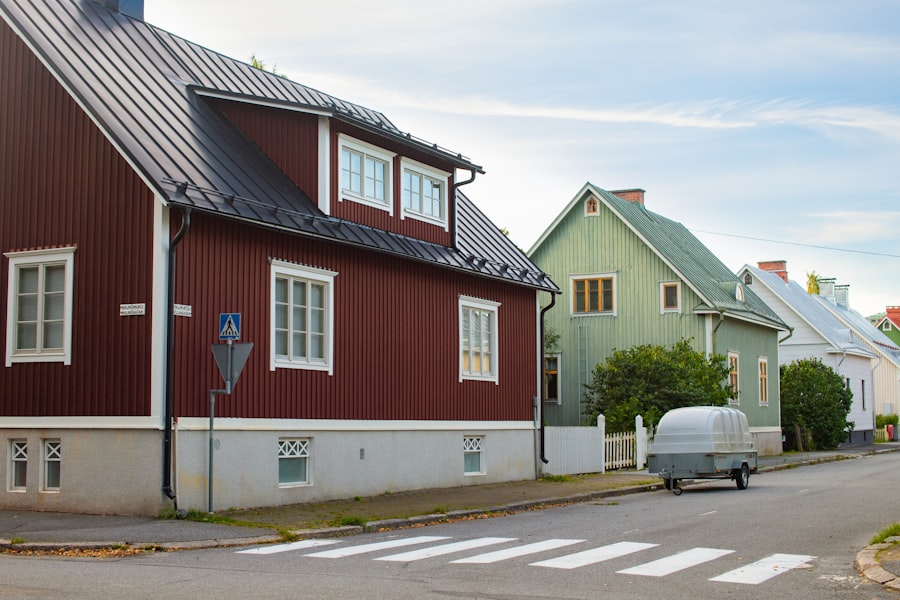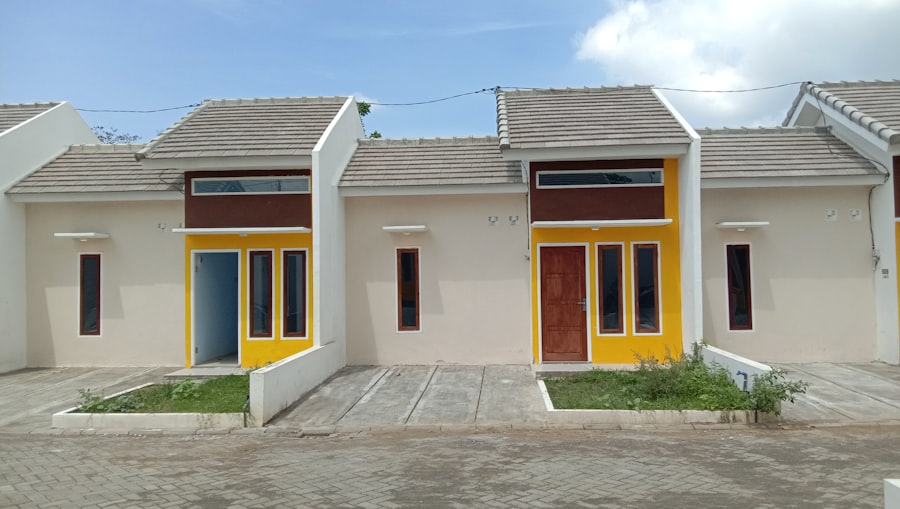The landscape of housing has undergone a significant transformation over the past few decades, with modern manufactured homes emerging as a viable and attractive option for many individuals and families. Once stigmatized as substandard or temporary housing, these homes have evolved dramatically in design, quality, and functionality. The shift began in the late 20th century when advancements in construction techniques and materials allowed for greater customization and durability.
Today, manufactured homes are often indistinguishable from traditional site-built homes, boasting contemporary designs and high-quality finishes that appeal to a broad demographic. The resurgence of interest in manufactured homes can be attributed to several factors, including rising housing costs, increased demand for affordable living options, and a growing awareness of the benefits these homes offer. As urban areas become increasingly expensive, many prospective homeowners are seeking alternatives that provide both affordability and comfort.
Modern manufactured homes are often more cost-effective than traditional homes, allowing buyers to invest in quality living spaces without the burden of exorbitant mortgages. This shift has led to a renewed appreciation for manufactured housing, positioning it as a legitimate choice for first-time buyers, retirees, and even those looking to downsize.
Key Takeaways
- Modern manufactured homes have evolved significantly, offering improved quality and design.
- They provide cost-effective, energy-efficient, and customizable housing solutions.
- Advanced technology and sustainable features are increasingly integrated into these homes.
- Various financing options make modern manufactured homes accessible to a wider audience.
- Selecting a reputable manufacturer is crucial for ensuring quality and satisfaction.
Advantages of Modern Manufactured Homes
One of the most compelling advantages of modern manufactured homes is their affordability. Compared to traditional site-built homes, manufactured homes typically come with a lower price tag, making them an attractive option for budget-conscious buyers. The cost savings can be attributed to the streamlined construction process, which allows manufacturers to produce homes more efficiently.
This efficiency not only reduces labor costs but also minimizes material waste, contributing to overall savings that can be passed on to consumers. In addition to affordability, modern manufactured homes offer flexibility in terms of location and lifestyle. Many manufactured home communities are strategically located near urban centers, providing residents with easy access to amenities such as shopping, dining, and entertainment.
Furthermore, the ability to place manufactured homes on private land allows for greater freedom in choosing a living environment that suits individual preferences. Whether nestled in a serene rural setting or within a vibrant community, these homes can cater to diverse lifestyles while maintaining a sense of belonging.
Customization Options for Modern Manufactured Homes

Customization is another hallmark of modern manufactured homes that sets them apart from their predecessors. Today’s manufacturers recognize that buyers seek personalized living spaces that reflect their unique tastes and needs. As a result, many companies offer an array of customization options, ranging from floor plans and layouts to finishes and fixtures.
Prospective homeowners can choose everything from the number of bedrooms and bathrooms to the style of cabinetry and flooring materials. This level of customization extends beyond mere aesthetics; it also encompasses functional features that enhance the livability of the home. For instance, buyers can opt for energy-efficient appliances, smart home technology integration, and additional storage solutions tailored to their lifestyle.
This ability to personalize not only makes the home more enjoyable but also increases its resale value by appealing to future buyers who may have similar preferences.
Sustainable Features of Modern Manufactured Homes
| Feature | Description | Benefit | Typical Impact |
|---|---|---|---|
| Energy-Efficient Insulation | High R-value insulation materials in walls, floors, and ceilings | Reduces heating and cooling energy consumption | Up to 30% reduction in energy use |
| Solar Panel Integration | Pre-installed solar photovoltaic systems on roof | Generates renewable energy onsite | Can supply 40-60% of home’s electricity needs |
| Low VOC Materials | Use of paints, adhesives, and finishes with low volatile organic compounds | Improves indoor air quality and reduces health risks | Significantly lowers indoor air pollutants |
| Water-Efficient Fixtures | Low-flow faucets, showerheads, and dual-flush toilets | Reduces water consumption | Up to 40% water savings |
| Energy Star Appliances | Use of certified energy-efficient refrigerators, HVAC, and lighting | Decreases electricity usage | 10-25% lower energy consumption |
| Recycled and Sustainable Materials | Incorporation of recycled steel, wood, and composite materials | Reduces environmental impact of construction | Up to 50% reduction in embodied carbon |
| Advanced HVAC Systems | High-efficiency heat pumps and ventilation with heat recovery | Improves energy efficiency and indoor comfort | Up to 35% energy savings |
| Smart Home Technology | Automated lighting, thermostats, and energy monitoring | Optimizes energy use and reduces waste | 5-15% additional energy savings |
Sustainability has become a critical consideration in the housing market, and modern manufactured homes are no exception. Many manufacturers are now prioritizing eco-friendly practices in their construction processes and materials. For example, some companies utilize recycled materials in their building components, reducing the environmental impact associated with new construction.
Additionally, energy-efficient designs are becoming standard, with features such as high-performance insulation, energy-efficient windows, and solar panel options increasingly available. The incorporation of sustainable features not only benefits the environment but also provides homeowners with long-term savings on utility bills. Energy-efficient appliances and systems can significantly reduce energy consumption, leading to lower monthly expenses.
Furthermore, many states offer incentives for homeowners who invest in energy-efficient upgrades, making it even more appealing for buyers to consider sustainable options when purchasing a manufactured home.
Technology and Innovation in Modern Manufactured Homes
The integration of technology into modern manufactured homes has revolutionized the way people live and interact with their living spaces. Smart home technology is at the forefront of this innovation, allowing homeowners to control various aspects of their home environment through mobile devices or voice-activated systems. From smart thermostats that optimize energy usage to security systems that provide real-time monitoring, these technological advancements enhance convenience and safety.
Moreover, manufacturers are increasingly incorporating innovative building techniques that improve the overall quality and durability of manufactured homes. For instance, modular construction methods allow for greater precision in building components, resulting in stronger structures that can withstand various environmental conditions. This focus on innovation not only elevates the quality of manufactured homes but also positions them as competitive alternatives to traditional housing options.
Financing Options for Modern Manufactured Homes

Financing a modern manufactured home can be more accessible than many prospective buyers realize. While traditional mortgages may not always apply to manufactured homes, there are various financing options specifically designed for this type of housing. Many lenders offer chattel loans, which are personal property loans that allow buyers to finance the home itself rather than the land it sits on.
This can be particularly advantageous for those purchasing homes in manufactured home communities or on leased land. Additionally, government-backed loans such as FHA loans can provide favorable terms for buyers of manufactured homes. These loans often require lower down payments and offer competitive interest rates, making homeownership more attainable for individuals with limited financial resources.
Understanding the available financing options is crucial for prospective buyers as it enables them to make informed decisions about their investment in a manufactured home.
The Future of Modern Manufactured Homes
As societal trends continue to evolve, the future of modern manufactured homes appears promising. With an increasing emphasis on affordable housing solutions amid rising real estate prices, manufactured homes are likely to gain further acceptance as a legitimate housing option. The growing interest in minimalism and sustainable living aligns well with the characteristics of manufactured homes, which often promote efficient use of space and resources.
Moreover, advancements in technology will likely continue to shape the industry. As smart home technology becomes more prevalent and affordable, future manufactured homes may incorporate even more sophisticated systems that enhance energy efficiency and convenience. Additionally, as manufacturers respond to consumer demand for eco-friendly options, we can expect an increase in sustainable building practices that prioritize environmental responsibility without compromising quality or comfort.
Choosing the Right Manufacturer for Your Modern Manufactured Home
Selecting the right manufacturer is a critical step in ensuring a positive experience when purchasing a modern manufactured home. Prospective buyers should conduct thorough research on various manufacturers to assess their reputation, quality standards, and customer service track record. Reading reviews from previous customers can provide valuable insights into the experiences others have had with specific companies.
It is also essential to visit model homes or showrooms whenever possible. This allows potential buyers to experience firsthand the quality of construction and design options available. Engaging with sales representatives can provide clarity on customization options and financing solutions tailored to individual needs.
Ultimately, choosing a reputable manufacturer who prioritizes quality and customer satisfaction will significantly enhance the overall experience of owning a modern manufactured home.



